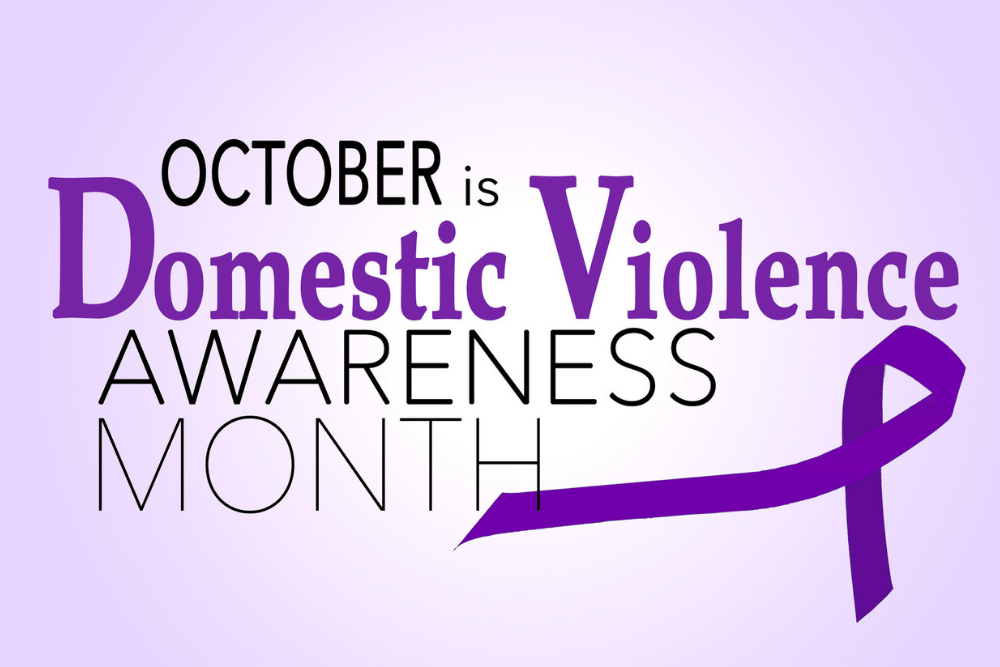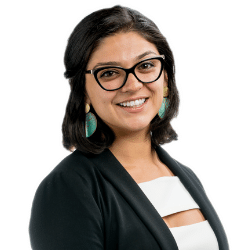
Unseen & Unheard: Domestic Violence in 2020
What if someone told you there was more than one pandemic in 2020?
Angela Ceseña is the executive director of Latina SafeHouse, and a recent panelist for our Chat4Change, Unseen & Unheard: The Resounding Impacts of Domestic Violence. You may reach her at angela@latinasafehouse.org with any questions or to share your favorite local coffee and/or doughnut spot.

Katrina is a 28-year-old single mother of three young boys who was kicked out of a local shelter when staff stated they could not condone illegal activity, referring to her immigration status.
She immigrated to the U.S. from Honduras at the age of 18, newlywed, with the man of her dreams. He, a U.S. citizen, promised to help her obtain citizenship and employment. Instead, he slowly became emotionally and physically abusive, would force her to work without pay, and isolated her from friends and family. He never allowed her to learn English or seek legal guidance for her immigration status. Katrina was referred to Latina SafeHouse by her son’s elementary school counselor pre-COVID-19 when the counselor saw bruises on her arms and neck.
Domestic violence is a silent, concurrent pandemic that directly affects 1 out of every 3 Latinxs
Domestic violence is a pattern of actions and behaviors used by an intimate partner in order to maintain power and control over their respective partner.
Why don’t survivors leave?
99% of survivors have cited financial abuse as the main reason for staying in an abusive relationship. Financial abuse may present differently in each situation and can range from withholding wages to threatening to not pay bills, and at its core is related to maintaining economic power and control over another individual. Katrina, along with 100% of survivors surveyed, cited housing instability and insecurity as their main reason for staying in an abusive relationship.
Of the Latinx survivors served by Latina SafeHouse during the height of the COVID-19 pandemic and the stay-at-home order, 100% of survivors experienced unemployment, underemployment, and/or significant wage loss. At Latina SafeHouse, we also witnessed a 777% rise in new survivor intakes and a 2,145% rise in emergency rapid rehousing and requested financial assistance. Power dynamics are further exacerbated when conflated with language and cultural barriers.
The number one cause of homelessness and housing insecurity in women and children is domestic violence
Due to the growing number of intakes and the increasing intensity in cases, the need for housing security, and the rise in xenophobia, discrimination, and anti-immigrant sentiment, Latina SafeHouse is launching a culturally sensitive and bilingual domestic violence housing first initiative – “Mi Casita” (My Home).
The Domestic Violence Housing First (DVHF) model focuses on getting survivors of domestic violence into stable housing as quickly as possible and then continuing to provide support as they rebuild their lives. This concept was originally piloted in Washington State and funded by the Bill and Melinda Gates Foundation. With safe and stable housing at its core, the key components of DVHF include: survivor-driven, trauma-informed, mobile advocacy, flexible financial assistance, and community engagement.
Culturally responsive, inclusive, and equitable approaches needed for healing and thriving
After being kicked out of a domestic violence shelter because of her immigration status, Katrina mentioned she would have been better off with her former abusive partner because with her partner, she was familiar with the forms of abuse. At the shelter, she felt discriminated against, was dehumanized, and was re-victimized.
The Latina SafeHouse Mi Casita pilot will help identify barriers to care for Latinx survivors and will adapt the model to be culturally responsive, inclusive, and have equitable approaches to healing and thriving so that Latinx womxn like Katrina can receive proper services.
October is Domestic Violence Awareness Month, but there’s another important date to note. October 29, 2020 is Latina Women’s Equal Pay Day. This means Latinas had to work all of 2018 and the majority of 2019 in order to match white, non-Latino men’s 2018 earnings.
Domestic violence fueled by pervasive forms of systemic racism and sexism
We cannot tackle domestic violence without addressing pervasive forms of systemic racism and sexism, institutionalized forms of oppression, and the nuances of intersectionality. Power dynamics will continue to exist and fuel domestic violence at disproportionate rates if we continue to treat BIPOC womxn as second-class citizens.
If you or anyone you know if experiencing domestic violence and would like support, please know that you are not alone. For bilingual support, please call 720-336-1664 . To find local resources near you, please visit Violence Free Colorado.
The Women’s Foundation of Colorado is a nonpartisan organization. The opinions of guest bloggers are their own and do not necessarily reflect the opinions or positions of The Foundation.

